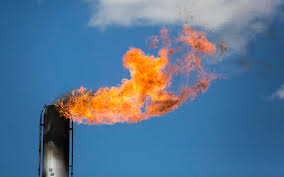From the Republican & Herald, Pottsville, PA, October 18, 2022
Schuylkill County, Penna — Cleaner air, progress against dangerous climate-warming and well-maintained highways all are in the public interest, which means that there is no guarantee that any of them will materialize in Pennsylvania — where polarization and parochial politics are more important.
The state government faces a December 16 federal deadline to adopt regulations controlling emissions from gas wells. Although the rules apply primarily to a class of smog-forming gases known as volatile organic compounds, the regulation also would result in reducing emissions of methane — one of the most potent gases responsible for trapping heat in the atmosphere.
Methane is what drilling companies sell as natural gas. Any captured methane would be sold, generating revenue for the companies.
Gas escapes from two types of wells in Pennsylvania — “conventional” vertical wells characteristic of the state’s older drilling industry, and new “unconventional” deep, horizontally drilled wells that mark drilling across the Marcellus Shale fields.
Regulations to better reduce those emissions are required by federal law. Likewise, the federal sanction for not doing so is mandatory rather than discretionary. If the state misses the deadline, the federal government will withhold from Pennsylvania about $450 million in highway funds for this fiscal year. If the delay carries into the next fiscal year, that year’s federal highway funding will be at risk.
This should be an easy one, but this is Pennsylvania. The Department of Environmental Protection broke the regulation into two parts — one covering conventional wells and the other applying to modern wells — after majority Republicans on a House environmental committee objected to the combined rule.
In June, the Environmental Quality Board approved the rule applying to modern wells. And Wednesday, by a 15-3 vote, it approved the regulation for unconventional wells.
But two of the “no” votes came from chairmen of House and Senate committees. They don’t have the power to void the regulation, but they can order a six-month review. That would cause the state to miss the December 16 deadline, putting $450 million in highway funds at risk.
Operators of older wells don’t want to assume the cost of long-overdue environmental regulations. But that narrow interest should not exceed that of Pennsylvanians in healthy air and roads. The obstructionists should get out of the way.


